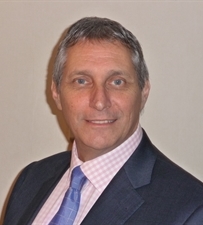01.12.15
Don’t ignore our cries for help
Source: NHE Nov/Dec 15
 Eddie Saville, chief executive of the Hospital Consultants & Specialists Association, a professional body and trade union, writes on workplace stress and plummeting morale.
Eddie Saville, chief executive of the Hospital Consultants & Specialists Association, a professional body and trade union, writes on workplace stress and plummeting morale.
Repeat a warning enough and there is a risk it will lose its power. It is sometimes hard to avoid the suspicion that this is precisely what is happening among key NHS stakeholders confronted by mounting evidence of intolerable workplace stress. They do so at the health service’s peril.
Few choose to join the NHS as a low-stress career path. From receptionists and porters to clinical staff and managers, the job was never going to be without unique pressures.
But increasingly it appears that these pressures have reached levels well beyond anything that could be described as normal. A stream of symptoms, whether it be via research, ongoing recruitment problems and departures from the sector, suggest that intolerable stress is now endemic within our health service.
Alongside the current political demand for universal seven-day services, underfunding, contract reform and years of pay restraint, the pressure on hospital doctors is becoming extreme.
With more than eight in 10 hospital consultants and specialists telling HCSA they are considering early retirement due to unreasonable workplace stress, this is a systemic threat which can no longer be approached, as it has been all too often, with sympathetic written policy, lip service, yet inadequate practical action.
When we asked HCSA members, many of them already providing a seven-day service, about their own experiences of workplace stress, we were inundated with hundreds of individual responses.
 The evidence shared with us by senior hospital doctors paints a picture that it would be foolhardy to ignore.
The evidence shared with us by senior hospital doctors paints a picture that it would be foolhardy to ignore.
They pinpointed relentless and growing pressure as the cause of illnesses including clinical depression, type 2 diabetes, high blood pressure, stomach ulcers, anxiety, shingles and strokes.
The anecdotes provided by some of the 83% who said their family life was affected by workplace stress were bleak, a litany of broken relationships, anger, guilt and despair.
“I don’t recognise the person I was before I became a consultant. I’ve lost many friends who cannot understand the pressure that I am under and am considering resignation before I lose my family,” went one typical response.
Coming home to their children after a day’s work, another said, “I can hear myself yelling at them and I just can’t stop.”
Nearly 85% reported skipping breaks ‘always’ or ‘often’ because of workload, with doctors reporting being forced to eat lunch over bins next to the operating theatre – an image far from the high-tech, 2020 NHS vision that policy-makers wish to achieve.
Repeatedly the message was the same. Doctors are facing a life choice between continuing in a profession they once loved or leaving to preserve their mental and physical health and wellbeing.
In 2013, when the Care Quality Commission conducted an independent audit of its own workforce, a body often blamed as a driver of pressures locally was itself in the spotlight over internal stress levels, bullying and depression, leading to promises of a new ‘zero tolerance’ policy to change the management culture deemed the root cause.
All the evidence from consultants suggests that it is time for a similarly candid, mature approach to the issue within our hospitals.
HCSA members told us that the main drivers of workplace stress were “unsympathetic management” and “lack of communication between staff and management”, alongside “lack of consultation over changes” and “too much work”.
We would be doing hospital doctors and the whole NHS family a disservice if we were to ignore these cries for help. Plummeting morale and the haemorrhaging of skilled professionals from the service is becoming a critical issue.
With the alternative being a threatened mass exodus of staff, a solution would benefit employers, patients, staff and the health of the country as a whole.
So we say to all health service organisations: work with us, in a spirit of partnership locally, to carry out stress testing that will pinpoint and release these dangerous pressures within the system and stamp out this endemic problem.
Our goal must be to create an environment where improvements to the health and wellbeing of staff feed through to patient care, reflecting the accurate maxim that a happy doctor makes for happy patients.
Tell us what you think – have your say below or email [email protected]